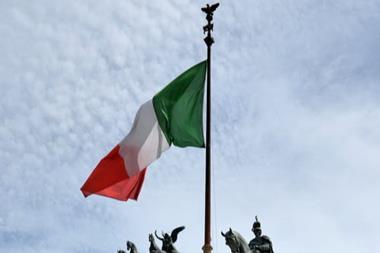Central banks’ change in monetary policies through rising interest rates have proven to be a tailwind for German Pensionskassen which have been suffering during a prolonged period of low or negative rates.
“The interest rate increase in the market [for Pensionskassen] means that the return expectations for the future, especially in the context of new investments and reinvestments, are increasing,” Volker Meusers, head of funding vehicles at WTW Deutschland, told IPE.
But rising interest rates also mean a reduction of the market value of securities already held in Pensionskassen portfolios.
“Since most of the securities are held by Pensionskassen on a long-term basis, until maturity, the increase in interest rates alone does not usually lead to a write-down on the book values,” he added.
Allianz is currently observing a sharp rise in interest rates that is “a good sign” for new investments and will strengthen the earning power of security assets of Allianz’s life insurance business and also for the Allianz Pensionskasse, a spokesperson for the company told IPE.
Within the wider business of company pension schemes, Allianz Lebensversicherung relies on offers of direct insurance (Direktversicherung) and Pensionsfonds, that are significantly more attractive than Pensionskassen.
“Due to the low demand, Allianz Pensionskasse has not accepted any new contracts since 2022. This does not have an impact on existing customers. Customers of Allianz Pensionskasse do not have to worry about the security of their guarantees,” the spokesperson added.
The European Central Bank (ECB) has decided to raise interest rates by 0.5 percentage points, the first increase in 11 years, ending an eight-year period of negative rates, and bond-buying programmes.
Christine Lagarde, president of the ECB, said: “With these actions we are sending a clear message to companies, workers and investors: inflation will return to our 2% target over the medium term.”
The Federal Reserve hiked rates by 0.75 percentage point to a range of 2.25-2.5% to tame inflation.
According to Frank Grund, executive director of the financial supervisory authority BaFin, the situation for the 135 Pensionskassen in Germany “has improved significantly” because of a recovery in interest rates and “energetic persuading” work done by sponsoring companies, Handelsblatt reported.
Instead of 40 Pensionkassen, as of February, 30 are currently under intensified supervision by BaFin, the report added.
For WTW’s Meusers, however, the speed of the most recent rate increase, and also the volatility, means that this year in particular, processes relating to the management of returns and reporting have to be well thought through.
“This currently means additional work for the pension institutions, and certainly also for the supervisory authorities, auditors and other parties involved,” he added.
Impact on asset allocation
Interest rate hikes, raising yields on bonds and volatility can have an impact on the asset allocation strategies of German Pensionskassen.
“In particular Pensionskassen that have lowered discount rates in recent years, could consider switching to less promising/risky asset classes. In the event of a further increase in interest rates, closed Pensionskassen could consider a low-risk investment strategy that matches cash flow,” according to Meusers.
From the point of view of those entitled to pensions, he added, the security of guaranteed benefits is important, and inflation cannot be countered by switching to apparently safe interest-bearing securities away from real assets.
Allianz Pensionskasse is constantly expanding its allocation to real estate and alternative investments to offer a high level of protection against inflation and generate attractive returns, the spokesperson said.
The latest digital edition of IPE’s magazine is now available
















